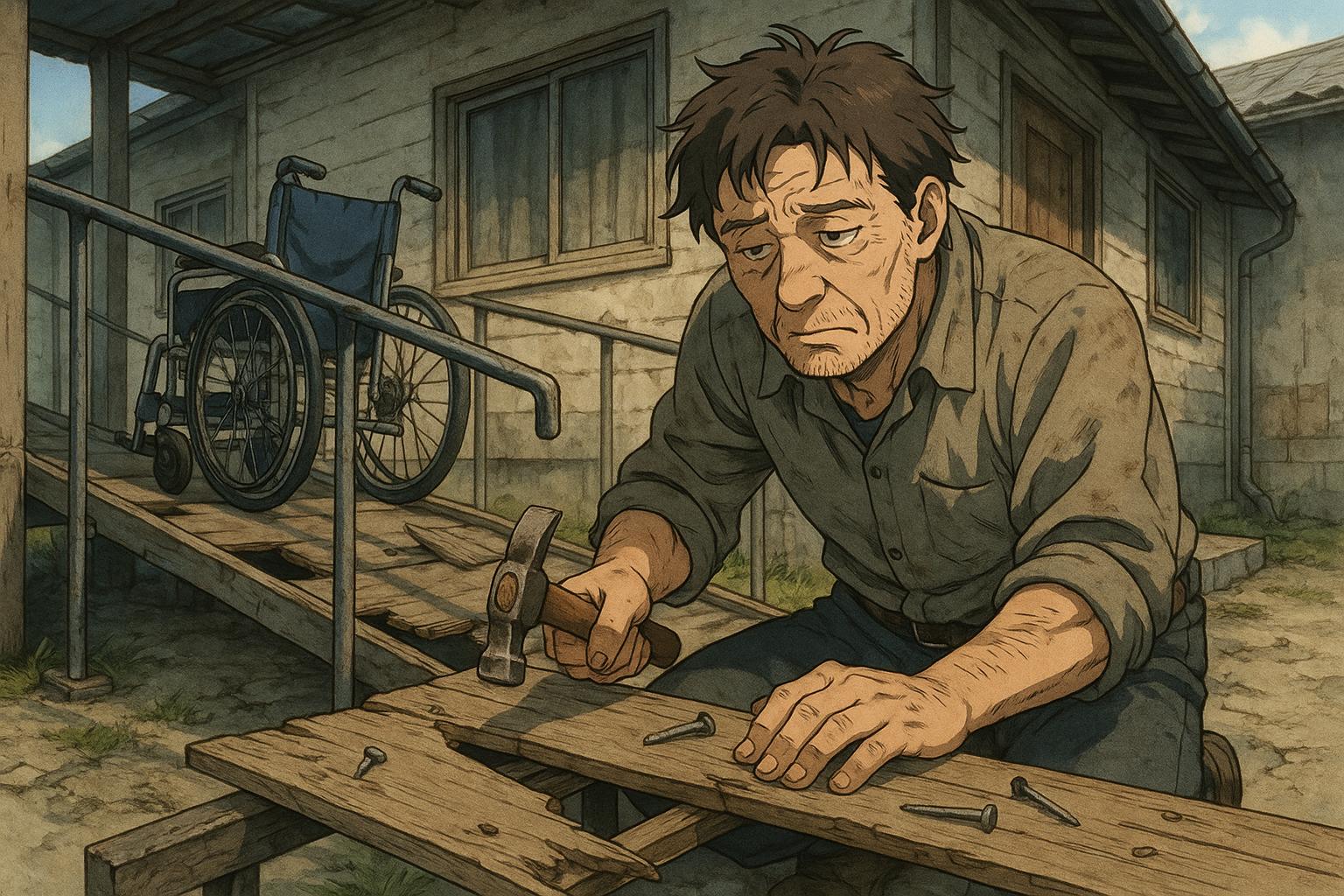A family's experience with the BBC’s DIY SOS has taken a grim turn, leaving them grappling with the fallout from what they describe as a “horror show” renovation. Peter Chapman and his wife, Sarah, turned to the show in 2020, hoping to make their home more accessible for Sarah, who suffers from myotonic dystrophy, a condition that affects muscle function. However, five years later, they are still dealing with the aftermath of extensive repairs caused by the shoddy workmanship they encountered.
Peter Chapman, now 66, has invested approximately £40,000 of his own money to rectify the myriad issues left behind by the DIY SOS team, led by presenter Nick Knowles. Initially, the couple was offered £15,000 in compensation by the BBC, but after declining the offer, they reported that communication from the broadcaster ceased entirely. Despite over 50 emails and numerous phone calls, the couple has received no further assistance.
Peter encapsulated the disappointment succinctly: “I thought we were going on a home renovation reality show, but it turned out to be a horror show.” He detailed the extensive list of failures, from incorrect flooring that posed a safety risk for Sarah to dangerous construction flaws that compromised the very structure of their home. The installation of a slippery faux wooden floor not only defied the couple's specific requests—for a carpeted surface to accommodate Sarah’s needs—but also resulted in additional expenses amounting to £3,000 when Peter had to replace it himself.
The Chapmans also encountered significant problems with structural elements designed for accessibility. A ramp intended to allow easy wheelchair access to their garden has proven dangerously steep, rendering it unviable for Peter to push Sarah back inside after taking her outdoors. “It is heartbreaking for her to see our lovely garden but not be able to go outside and enjoy it,” he lamented.
The couple’s struggles have been compounded by the complex nature of remedial work; many of the DIY SOS team's blunders only became apparent after initial repairs had been attempted. For example, a new driveway installed by the team required an additional £3,750 to fix by a specialist contractor due to subpar workmanship. Additionally, improper roofing techniques led to leaks that necessitated a £2,200 repair, highlighting serious issues with quality control in the show’s production.
The emotional and financial toll on the Chapman family is profound, especially since Peter is also a full-time carer for their daughter, Suzie, who is 41. “All these jobs take up an incredible amount of my time,” he noted, as he juggles care responsibilities with ongoing repairs. “I’m at the stage now where I’ve given up getting back the money that repairing this house has cost me,” he mused, further illustrating the relentless stress the situation has placed on them.
Peter’s determination to reclaim their home reflects a broader concern regarding the consequences of reality television productions on participants' lives. As familiar as these shows may seem to audiences, the adverse effects on the lives of those they feature are often obscured. Nick Knowles, while a popular television personality, has not acknowledged the Chapman family's predicament, nor has he or the BBC offered any meaningful reconciliation.
In response to the Chapman family's complaints, a BBC spokesperson asserted that DIY SOS works to enhance the lives of those in need through community participation and adheres to necessary regulatory approvals. Yet, for the Chapmans, such assurances ring hollow in the face of their lived reality, where trust in the system has been thoroughly undermined by a series of unfortunate events.
The Chapmans are not in a financial position to pursue legal action against the BBC, leaving them with a lingering sense of injustice and disappointment. Their ongoing battle to repair their home serves as a reminder of the potential pitfalls and unanticipated consequences that can arise from participating in televised home improvement projects, particularly when the promises made do not match the reality delivered.
As they continue to strive for a functional and welcoming home, the family remains hopeful that one day they will achieve their dream space, albeit at a significant cost borne entirely out of their own pockets, and not thanks to the assistance of those who initially pledged to help.
Reference Map
- Paragraph 1: 1
- Paragraph 2: 1
- Paragraph 3: 1
- Paragraph 4: 1
- Paragraph 5: 1
- Paragraph 6: 1
- Paragraph 7: 1
- Paragraph 8: 1
- Paragraph 9: 1
- Paragraph 10: 1
- Paragraph 11: 1
Source: Noah Wire Services
